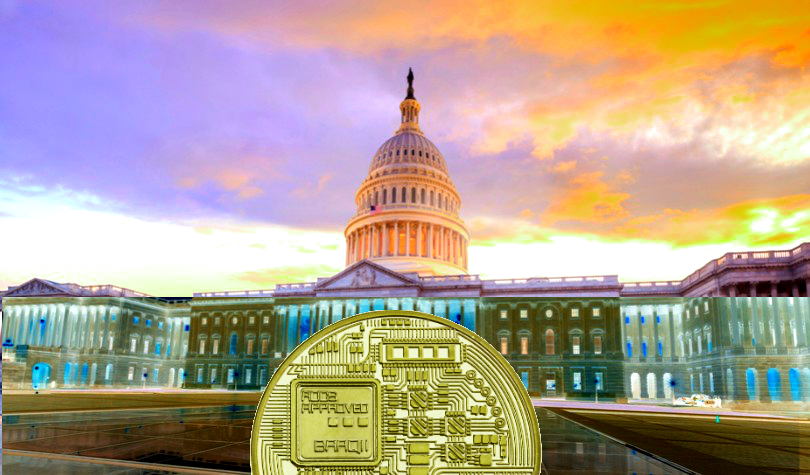Two committees in the US House of Representatives held the first joint hearing on cryptocurrency on Wednesday. It also sought to pave the way for legislation regarding cryptoassets. The first stages of the trial were brutal. Some Democrats questioned whether crypto-specific legislation should be signed. Here are the details…
Congress seeks to prepare legal framework for cryptocurrencies
The hearing, organized by the House Financial Services Committee (HFSC) and the House Agriculture Committee, was called “The Future of Crypto Assets.” The talk was titled “Measuring Regulatory Gaps in the Crypto Assets Market”. HFSC chairman Patrick McHenry announced that the hearing will be held this month at Consensus 2023 in April. He confirmed that the conversation will be about the market structure surrounding crypto-assets. In his opening speech, McHenry emphasized to his fellow committee members that “the purpose here is to make laws.”

The committees, led by Senator Patrick McHenry and Representative Glenn Thompson, listened to a number of experts, including Republic Crypto, CFTC, Kraken, Web3 Foundation, former CFTC Chairman Timothy Massad, and NYSE Chief Operating Officer Michael Blaugrund. Rather than developing new US crypto legislation, the focus has been on supplementing existing laws with crypto-specific changes. The meeting followed the Agriculture subcommittee’s views on the regulation of crypto spot markets on April 27.
Who said what?
In his keynote address, “crypto-friendly” McHenry highlighted the importance of innovation and consumer protection in creating regulations to close regulatory gaps. He expressed his goal of getting the CFTC and SEC to work together to protect consumers, unlike current practices. Committee member Representative Dusty Johnson confirmed the potential of Blockchain technology in his keynote speech.

Kraken Chief Legal Officer Marco Santori stated that the current disclosure framework does not adequately cover many crypto-asset features. Santori also referred to overseas investments, noting that these were limited without a comprehensive federal plan. The Howey Test, which is used to determine whether a cryptoasset is an investment contract or a commodity, was also discussed at the meeting, and Representative Mike Johnson highlighted the need for clarity and logical consistency in the crypto-asset space.
Representative Stephen F. Lynch expressed concern that creating new legislation would be seen as petty regulation, arguing that he does not believe a separate regulatory regime for crypto is the solution. He argued that the new arrangement seemed unnecessary.

“We need to get this right for a couple of reasons,” he said. “The first is to capitalize on innovation and ensure consumer protection. The other is to get the CFTC and the Securities and Exchange Commission to work together to ensure consumer protection as opposed to what is happening now,” he added. Her counterpart and most senior Democrat on the committee, Maxine Waters, agreed that it was time to go back to drafting the law, citing limitations on the Securities and Exchange Commission’s (SEC) power to pursue fraudulent crypto firms.
There are also those who consider editing work unnecessary.
But senior Democrat Stephen Lynch on the cryptoassets subcommittee didn’t quite agree. He argued that creating new legislation for cryptoassets seemed “unnecessary” given that the financial system’s current securities laws “have sustained tremendous innovation in our financial system for decades.” Lynch’s comments were largely in line with those of SEC chairman Gary Gensler. Gensler has repeatedly stated that the law gives his agency broad authority to regulate crypto. However, the Commodities and Futures Trading Commission (CFTC) argues that they have more authority over crypto than the SEC. So there’s also a conflict within the SEC and the CFTC.

What will happen to cryptocurrencies in the USA?
Towards the end of the trial, California Democrat and prominent crypto critic Brad Sherman questioned whether crypto assets should have a future in the United States. He described cryptocurrencies as a “secret money system” that diverts capital investments away from beneficial industries and whose “proclaimed purpose” is to circumvent sanctions and tax laws.
HFSC Chairman McHenry concluded the hearing, claiming that the SEC’s current approach to disclosure statements and records “doesn’t work for cryptoassets,” and that the CFTC needs additional jurisdiction over the market. “The CFTC and SEC cannot do this alone. Congress must act,” he said. Last month, McHenry said he expects the President to enact a crypto legislation within the next 12 months.







